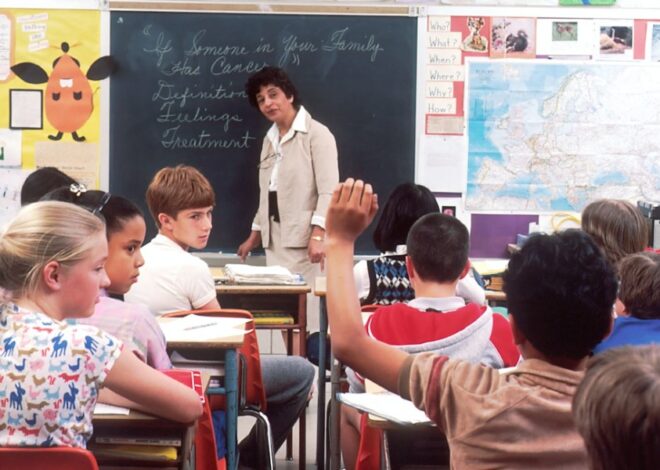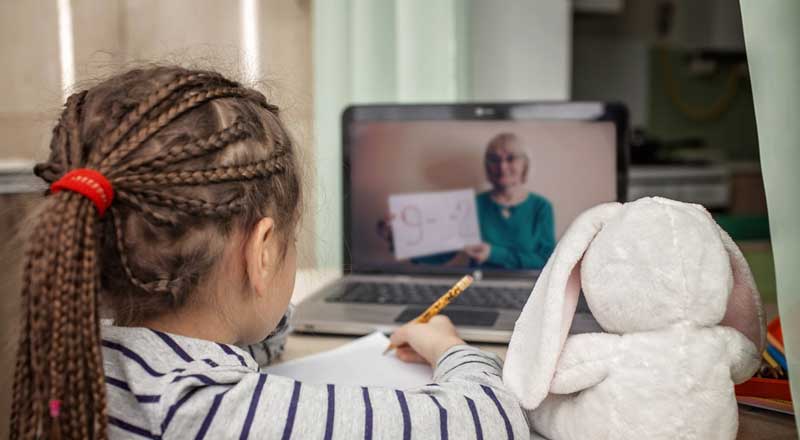To friend the teacher or not to friend the teacher, that is the question.
The school year is right around the corner and the safety of all children is on the forefront of our minds. We think its time for all parents to think about boundaries between students and their teachers.
Teachers are in the position of role model for our children, no matter what your children’s ages. In today’s world our children’s teachers are using technology. While technology is advancing the age of children, its use is starting younger and younger. Many teachers use technology in the classroom and your children need to be up to speed on the latest and greatest that is out there.
Children need to be 13 years of age to be on Facebook, yet we all know children as young as 9 have their own pages. Children have a hard time understanding the consequences of their actions–friending one’s teacher is something a kid might do, just like they might friend a relative, an older cousin or their older brother’s friend. From a child’s or teen’s perspective, a teacher is someone he or she sees daily and feels connected to. Perhaps the teacher has encouraged the kids to be in touch via Facebook to get questions answered or extra help.
It all sounds good, right? Wrong. Facebook is a social media network, a place where a teacher wears many hats. We are not even talking about impropriety here, we are talking about common sense privacy and professional boundaries. Do all teachers think to themselves before they post a picture or make a comment–“what will my 7th grade students think about this?” Is it appropriate for your 6th grader to know that her teacher spent the weekend away with her boyfriend? (Nothing wrong with Teacher spending the weekend away, but is it necessary for your sixth grader to know how her teacher spends her weekend?)
In today’s complicated world, it seems more and more that teachers are crossing boundaries with students. Not a day goes by that we don’t see a news story about a teacher, coach, or other trusted adult molesting, sexting, or using other inappropriate avenues to get close with a student through technology. Now if teachers are reading this…keep in mind that we are teachers too, and we believe that most teachers only have the best interests of their students in mind and would never cross inappropriate boundaries. But in this day and age, there are many that do, unfortunately. Because of this, we believe that teachers and students should NOT be friends on any social media sites.
Our children are growing up in the digital age–less is more, faster is better, and to catch a child’s attention, teachers must be on the cutting edge of technology. But that doesn’t mean that the students understand what is in their own best interest. Many wouldn’t think twice about friending a teacher on Facebook. It is the teachers that need to put in some thought, recognize their professional roles, and realize the risks they open themselves up to by friending students.
There are a myriad of options online for today’s teachers to reach out to their students without crossing professional boundaries or perhaps mistakenly showing favoritism. Teachers creating a class website that reaches out to the whole class, including parents, can be an effective form of communication and have tremendous benefit to children.
Since there is still much to learn regarding social networking and professionalism, we need to tread carefully on the subject. Some school boards in various states have even created policy to address the issue.
Our solution: Teachers should not be “friends” with their students! They should be mentors, role models, and guides for our children.
Teachers deserve to have a life. They have every right to post pictures, talk about their lives, and do whatever they want in their own social networking realm. But I don’t want my child to see it or be a part of it because when they do, they become a part of it too. And that, my “friend”, is how the boundaries become blurred.
For more information visit our website www.kidsafefoundation.org





